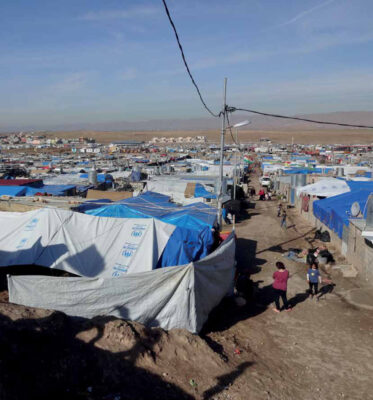Important notice
Please note that the images, figures, and tables for this Perspective have not been added yet. We are actively working to digitise and include these materials from our past magazines.
Main content
A personal commentary
Recently, I attended the NVTG/Uniting Streams symposium on “Engaging Communities in Sickness and Health”. It was a nice day, full of interesting meetings and discussions and, at least for me, above all, meeting people again. Diehards like myself, getting older with extensive tropical careers long behind them, younger ones full of enthusiasm and expectations for their future and the active ones, now in the middle of their ca-reers. All nice enough, yet I could not help gradu-ally feeling an increasing sense of frustration.
Again I had experienced what I see as the same toxic mix of white and professional arrogance that, in my opinion, has bedevilled both the Pri-mary Health Care and Community care concepts from their very inception. The same frustration that I felt after a symposium organized by the Health and Development (GEO) group about 15 years (!) ago with the title “What have we learned in 25 years of Primary Health Care ?” Then, as now, in my opinion the answer should be that in some essential aspects we have learned hardly anything at all!
Otherwise, how is it possible, that, in a sympo-sium with in its title ‘engaging communities’, there is not the slightest attention for African traditional structures and cultures, including traditional healers, in nearly all the presentations and discussions? How can one presenter tell me “We all know the great influence of the traditional culture on the community” while not even men-tioning it in a presentation, which was all about Community Health Workers (CHW’s) and the problems related to their functioning? That, when discussing the difficulties with regards to a pay-ment structure for CHW’s, it is not mentioned, that very many villagers go first to a traditional healer whom they pay and only come to ‘mod-ern’ facilities in case of failure? Why do we still completely ignore the emotions ad sentiments of African villagers, which confirms to them, what they are convinced about anyway, that we do not take them and their emotions seriously. Why are we not able to realize, that, if we want to make progress in health, it is not sufficient to appeal to ratio. That we have to appeal to emotions in our approaches! Africans feel that no one outside Africa is taking them seriously, and who can blame them?
Just one example: Planning of malaria projects. I have argued that when planning, you include and start with making an inventory of all those treat-ing people with fever (doctors, pharmacies, health workers, traditional healers, street vendors) in the area where you plan advocacy activities. And then use the inventory to judge whom of those you can involve in your advocacy programme? Otherwise, If you fail to do that, what do you expect Africans to do when, ill with fever, they go to traditional healer and hear very different ideas from him or her? Africans, in my opinion, when healthy are very apt in storing our/your ideas in the space in their heads reserved for them, and follow those of a traditional healer when ill! (often a mother with a small child with fever will actually have no other option open to her).
Engaging and Involving efforts of communities should start with what is important in the lives of the members. That should be a ‘conditio sine qua non!….. In Holland as well as in Africa!
It is my experience that I always get some support when bringing up these points and never any serious objections. But also, that this issue simply continues to be ignored. To my knowledge it has never come to a serious discussion up till now. Can we not start one within the NVTG?
May I appeal to you, NVTG members, to bring it up if you agree or disagree with me and tell me (us) why?



















































